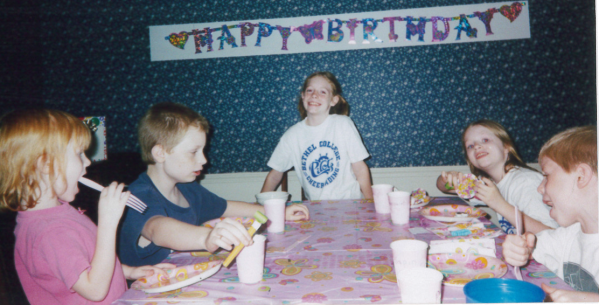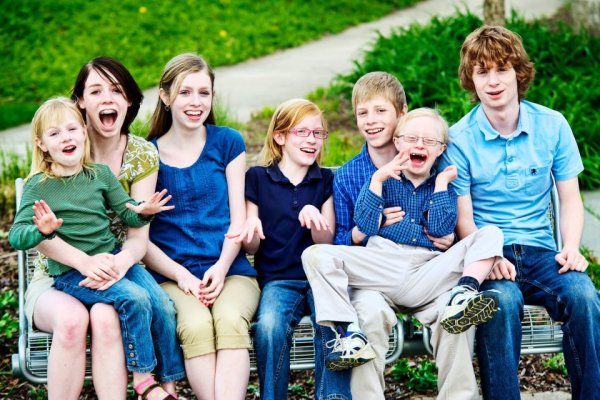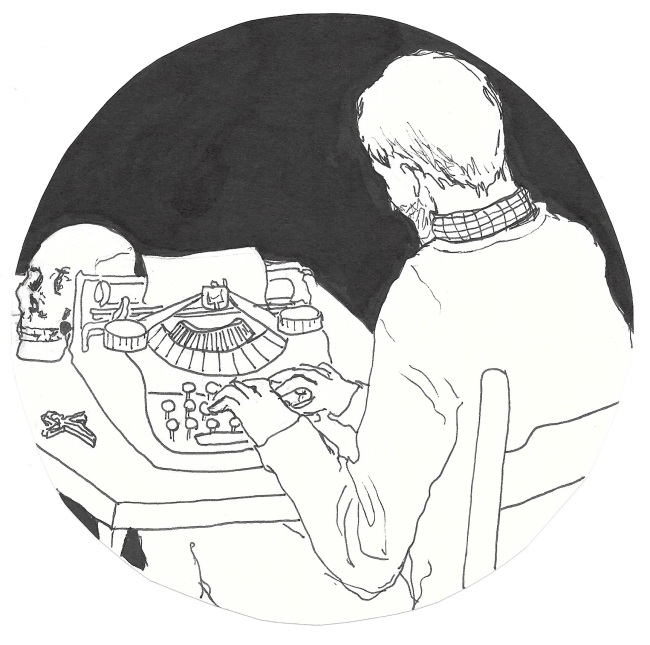Age of body does not determine age of soul. Even in childhood man can attain spiritual maturity…. Many children, through the strength of the Holy Spirit they have received, have bravely fought for Christ even to the shedding of their blood.
~ St. Thomas Aquinas
All posts tagged adolescence
Of Confirmation, Kids, and Conversion
Posted by Rick Becker on January 12, 2015
https://onethousandwordsaweek.wordpress.com/2015/01/12/of-confirmation-kids-and-conversion/
Five Teens for Five Months
Children of the same family, the same blood, with the same first associations and habits, have some means of enjoyment in their power, which no subsequent connexions can supply.
~ Jane Austen, Mansfield Park (1814)
Were you a history major? Me, too.
Remember much? Me neither.
One thing I’ll never forget though: 11/11 at 11 a.m. That memorable string of elevens marked the end of the First World War and the implementation of the 1918 armistice – hallelujah! Of course, a 1911 armistice would have provided greater numerical congruity, but you can’t have everything.
Anyway, our family marked its own imperfect string of matching numbers this past Monday – fives in our case. True, it was 12/1, and, yes, the year is 2014, but at 5:00 p.m. that day, my fifth child turned 13, and that means that we’ll have five teenagers for five months – count ’em, FIVE! Come to think of it, one of them will turn 15 next week – pentamerous serendipity abounds!
Serendipity, yes, and joy, much joy – really, it’s true! And what a relief given all the dire predictions we endured back when our family was still growing.
The admonitions started pouring in after our fourth was born – it’s always the fourth, isn’t it? For some reason, a fourth child is routinely interpreted (by friends, family, and even total strangers) as an open invitation to make witty remarks about fertility and marital intimacy. “You know what causes that, right?” or “Just like the Duggars!” Another good one: “Why don’t you leave your poor wife alone for a change?!” (insert chuckle: here)
Like most couples in similar situations, our default was diversionary. We’d just smile, make vague references to being blessed, and then change the subject – “How ’bout them Cubs, eh?” Sometimes, though, I’d press the point, and not only stress that my wife and I had both enthusiastically welcomed our largish family, but that we had both (both, mind you) eagerly hoped for more.
Eyebrows would leap in consternation, followed by a progression of predictable responses: #1, disbelief: “Really?”; #2, dumbstruck: “I don’t know how you do it!”; finally, #3, relief: “Better you than me!” And if the eyebrow-raiser was especially annoyed by our fecund complacency, we’d also get one additional warning – usually intoned with great solemnity, as if it were a prophetic utterance: “Just wait until they’re all teenagers!”
My gosh (*shudder*), what were we thinking?! All these kids we were having? They were bound to grow into teens one day, and now that day has come!
Yes, that day has come, and know what? It’s great – really! We love our teens – all five are fabulous. We enjoy their company and conversation, and delight in their pursuits and accomplishments. They’re thoughtful, affable, and witty – not that I’m biased or anything. Still, other adults relate similarly positive impressions of our teens – that they’re well respected, appreciated, and even admired.
Yet all this is so contrary to the anti-teen oracles that I kinda’ feel like we’ve somehow cheated the system – either that, or else we’re just too ignorant to see how miserable having our teenagers really is.
I’m convinced, though, that the oracles were just plain wrong, for it seems that our teens are simply older versions of their wonderful pre-adolescent selves. When they were younger, they were affectionate, fun, and family-oriented. Now? The same holds true, only more so. Take these recent examples: Crispin teaching Nicky how to play football; Joan listening to book tapes with Kath; Meg making everybody cookies; Cecilia writing letters to Ben away at college; Ben, in turn, calling home to wish Cece a happy birthday. Things aren’t perfect, no question – tender gestures and acts of generosity are all mixed up with plenty of squabbles, squalls, and drama. Overall, though, they’re a happy lot – happy as individuals, sure, but particularly happy as a crew.
How’d this happen? God only knows – literally. Families are crucibles for the formation of character, but they tend to be quite messy affairs, and the whole child-rearing endeavor is largely unfathomable – there are no foolproof recipes or one-size-fits-all approaches. And if we’ve been blessed with a bumper crop of amiable teens (as I’m suggesting), it’s not because of some formula my wife and I followed, but rather due to the mysterious work of grace in their lives and in the life of our family.
Nonetheless, it is possible – with hindsight – to pick out various contours in our domestic experiment that I’d like to think contributed to our kids’ amiable formation. And so, in honor of the flurry of fives associated with my teens (and following on the heels of this weekend’s opening of Top Five), here are five peaks that stick out in the topography of our experience with raising kids so far. If you have teens, you’ll probably recognize some of them as already present in your own families. And if you haven’t started a family yet? You might want to keep these notions in mind as you commence, and then see if they work for your own domestic adventure.
One caveat: All of these measures only have value to the degree which my wife and I attempt to live them out ourselves. Like so many other areas of life, what we actually do – even if imperfectly – is way more influential than what we profess.
- Mass is non-negotiable: My kids grew up knowing that this was not even a question. They would go to Sunday Mass; they would receive religious instruction; they would be formed in the faith. At the same time, they also grew into the awareness that they’d have to embrace the Faith they were raised in as their own in time.
LESSON: Belief may ebb and flow, but Catholic identity and formation is a must.
- Surround yourself with books: We’ve always tried to give priority to the written word – books, newspapers, magazines – over electronic media. Jesus was an incarnate word, and just as words become similarly incarnate in physical books, they have the potential to become incarnate in us as well. When I see piles of books around our kids’ beds, I’m reassured that they’re minds are regularly being exercised by linear thought.
LESSON: Read broadly and constantly.
- The best gift is another sibling: Much better than toys or trips or gadgets, another brother or sister is an eternal treasure. Plus, parents wanting more kids is always an unmistakable affirmation of their love for children already born: “We love you so much, we want more of you!” Finally, generosity in welcoming new life in a family reinforces the idea that all human life is sacred.
LESSON: People are more important than things.
- College is optional: I suspect all my kids will go to college, but it will be because they want to go, not because they felt they had to. Education is vital, true enough, yet it can take many forms, and it ought not be primarily associated with getting a better job or income. Instead, we’ve tried to teach our kids that education is primarily about learning, exploring new ways of seeing the world, and acquiring new skills. Careers and money are much further down the list.
LESSON: Intellectual curiosity and industry trump credentials and grades.
- Laugh loudly and often: We’ve tried to cultivate levity in our home – a lightheartedness that finds humor in virtually every circumstance. It helps that my children have acquired a taste for things like Calvin and Hobbes, P.G. Wodehouse, and Car Talk – sources of amusement that avoid cruelty and crudeness, and instead elicit smiles by means of irony and self-deprecation. A robust frivolity not only alleviates stress and anxiety, but it helps makes sense of a world that often appears nutty.
LESSON: Don’t take yourself too seriously.
That last one is crucial for us as parents because there’s nothing like teens to help keep us honest and humble, especially when it comes to remembering our own foibles and shortcomings. I’m sure it’s what Pope John Paul II was referring to when he noted that parents experience their own fine-tuning thanks to their kids’ input:
Thus children, while they are able to grow “in wisdom and in stature, and in favor with God and man,” offer their own precious contribution to building up the family community and even to the sanctification of their parents.
Which leads to my one complaint about our otherwise felicitous situation: We’ll only have the five teens until next May when Ben turns 20. After that, it’ll be the departure of one teen after another in rapid succession as they continue to grow up and leave the nest.
I wouldn’t want them to remain teens for life, but they can have no idea how each of them will be missed, nor how grateful we are to them for how they’ve helped us grow up ourselves – what will we do without them?
As they go forth, I trust that they’ll cherish their roots and keep in touch. We’ve built up a heritage of mutuality and mirth – no armistice will be required.
______________________________________________
A version of this essay appeared on Catholic Exchange.
Posted by Rick Becker on December 7, 2014
https://onethousandwordsaweek.wordpress.com/2014/12/07/five-teens-for-five-months/
Growing Up for Grownups
Coming of age movies are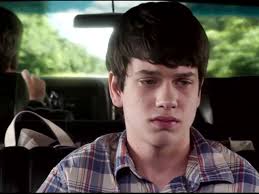 about adolescents, right? And we still watch them after we’ve left coming of age in the dust because, what, we’re nostalgic? Or we hope to get some insight regarding our own adolescence and the crud we went through growing up ourselves?
about adolescents, right? And we still watch them after we’ve left coming of age in the dust because, what, we’re nostalgic? Or we hope to get some insight regarding our own adolescence and the crud we went through growing up ourselves?
These were the thoughts rumbling through my head the last few days as I’ve read the reviews of The Way, Way Back, the coming-of-age movie de jour. It’s about Duncan (Liam James), a 14-year-old with a distracted divorced mom whose boyfriend, Trent (Steve Carell), is an unmitigated jerk. The Way, Way Back is up to 87% on the Tomatometer, receiving lots of raves from reviewers and ordinary moviegoers alike. It sounds terrific, and I’m thinking I’ll even pay full price to see it as soon as I can scrape together the cash.
No doubt it’s a wistful hearkening for days of yore, but I’ll still fork over to see these kinds of movies—like Mud earlier this summer and Super 8 a couple years back. They do tend to be associated with summer, which is itself evocative, and my guess is that most of these films probably premiere in the summer months as well. Coming of age, warm weather, vacation—they all seem to go together.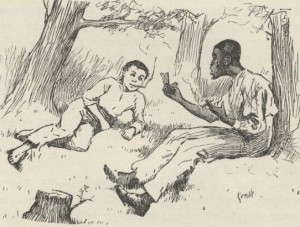
It’s a genre with a noble pedigree, including standouts like Breaking Away (1979) and Stand By Me (1986), but, really, they’re all just rehashed Mark Twain, at least the ones about boys. Alienation and separation from parents (especially dad) is a mainstay, and the assumption of a task or mission, usually involving danger, provides narrative scaffolding. Usually there’s a replacement father, and often a love interest, but the heart of every coming of age story is the protagonist charting his own course—Huck Finn setting off down the Mississippi with a runaway slave in other words. It’s a familiar theme, and The Way, Way Back, from all reports, does it justice.
So, with all that in mind, I watched the trailer, and…I got all choked up.
“Really?” my wife asked me when I showed it to her. “That made you cry?” My teens were incredulous as well. “He sure is going soft in his old age,” is what I imagine they were thinking as they shook their heads. No matter; I admit it: The trailer made me cry—yes, just the trailer. If you’re a parent, especially a dad, maybe it’ll make you cry, too
Here’s why, I think.
The introspection that films like this often inspire in the middle-aged and their elders is backward looking, and often fruitful and needed—we think back, we reflect, we process, we sigh. The producers and marketers know this, I’m sure, and they tailor these movies as much for people like me looking back as for actual coming-of-age adolescents looking forward. After all, it’s about ticket sales, isn’t it? Hit as many demographic groups as possible!
Yet there’s something about The Way, Way Back that makes it forward oriented for both audience demographics, despite the title—at least based on the reviews and the trailer. I saw lots of screwed up adults in the clips, but even that short two and a half minutes radiated joy and vitality and an overarching hope that somehow Duncan would be OK, that he was going to do just fine despite the parents and grownups in his life.
For me, an insecure parent haunted by regrets and doubt, who knows he’s made lots of mistakes he can’t undo, and who is clumsily trying to make up lost time by grasping at family living like a desperate rock climber grasping at belays and fissures—for me? Even that short trailer was a blissful reminder that it’s not all up to me in any case. My wife and I are players in the lives of our children, and critically important players at that, but we’re still only players—there are others.
And the other players aren’t always the ones we’d expect or choose, another note this film apparently (I’m guessing here) gets right. Sam Rockwell plays Owen, a unselfconscious wounded healer free of ambition who becomes Duncan’s surrogate father. “You gotta’ go your own way,” Owen tells Duncan, “and you, my friend, are going your own way.” He builds up where Carell’s Trent tears down, and Owen pointedly reminds Duncan’s mom, “You’ve got a helluva’ kid here.”
A bonus big plus is that The Way, W ay Back avoids peddling a feel-good story in a neat two-hour package with an unrealistic horizon. “You don’t see too many movies about the importance of fathers, and they’re rarely done this well,” writes Mick LaSalle in the San Francisco Chronicle. “Rockwell is the good father figure, and Carell the awful one, but Carell is too sensitive to play a total monster.” In other words, even when we screw up? It’s redeemable.
ay Back avoids peddling a feel-good story in a neat two-hour package with an unrealistic horizon. “You don’t see too many movies about the importance of fathers, and they’re rarely done this well,” writes Mick LaSalle in the San Francisco Chronicle. “Rockwell is the good father figure, and Carell the awful one, but Carell is too sensitive to play a total monster.” In other words, even when we screw up? It’s redeemable.
Pope Francis gets at this in his new encyclical—the idea of marriage and having kids appearing like a huge gamble that’s still doable to the degree that it is infused with love, particularly Love from the source.
Promising love for ever is possible when we perceive a plan bigger than our own ideas and undertakings, a plan which sustains us and enables us to surrender our future entirely to the one we love. Faith also helps us to grasp in all its depth and richness the begetting of children, as a sign of the love of the Creator who entrusts us with the mystery of a new person (Lumen Dei, 52).
“Possible,” “sustains,” “enables,” “helps”—these are words of hope, not surety. Marriage and raising kids is not math, it’s not a lab assignment. It’s a messy adventure filled with risk and reward, for which we’re all ill equipped, and we’ll muck it up time and time again. No question.
It sounds like this movie, though, offers a heaping serving of perspective on all that, and can provide us paranoid parents with just the right dose of insight into how God can fill in the gaps we can’t prevent in our children’s lives. Not much of a revelation when you think about it. He gave us the kids and put us in charge for a while, but they’re His. God loves them more than we do, and He’s more than capable of caring for them when we fall short.
So, all this from a handful of reviews and a single trailer? A bit much, perhaps? Maybe it was just an exceptionally good trailer. Perhaps. Let’s say that’s the case, and I never get a chance to see the movie itself, and this whole post is an embarrassing exercise in presumption and hauteur.
Look, my kids are getting older and college is on the horizon for them, and the time is slipping through my fingers like water—not sand, mind you, water. If a 2-1/2 minute trailer can jostle my sullen spirit and restore my confidence in Julian of Norwich’s “all shall be well,” then so be it. I’ll take it. And maybe I’ll save the $7 for a different movie another day.
__________________________________________
Posted by Rick Becker on July 7, 2013
https://onethousandwordsaweek.wordpress.com/2013/07/07/growing-up-for-grownups/

